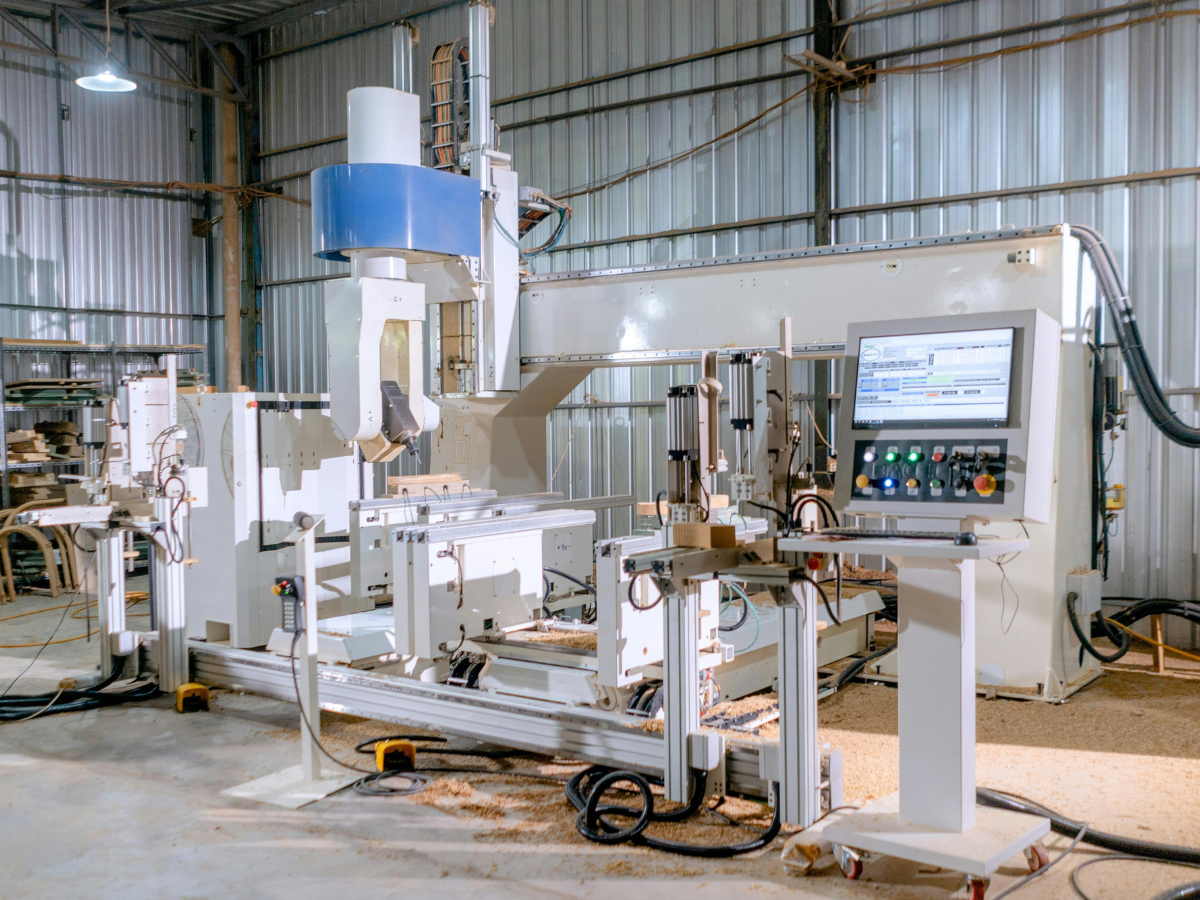Modular Automation is the Future of Custom Manufacturing
Traditional industrial automation offers centralized control of production lines to provide increased efficiency and other benefits for manufacturers with static production runs and demand. However, for custom manufacturing businesses or those with fluctuating demand and/or smaller runs of a variety of products, reconfiguring and reprogramming traditional automation systems for production changes can be complex, costly and time consuming. At the same time, companies that specialize in high-mix, low-volume manufacturing still need to achieve efficient and cost-effective production.
For this reason, custom manufacturing companies are turning to modular automation solutions, which provide the required time and cost efficiencies but offer the flexibility to better manage the demands of customized production.
This blog will explore the difference between traditional mass production and custom manufacturing and explain the advantages modular automation brings to high-mix, low-volume manufacturing scenarios.
Mass Production vs. Custom Manufacturing?
Traditional mass manufacturing produces large quantities of a single product using fixed, highly specialized assembly lines and automated equipment with high levels of output and precision at fast speeds. In traditional mass production, each machine has a specific task and equipment is often integrated to provide an efficient, repeatable and cost-effective method of making products.
However, as consumer preferences change, the manufacturing industry is evolving to accommodate fluctuations in demand and more requests for smaller batches of customized products. This trend has led to more custom manufacturing businesses, which specialize in high-mix, low-volume manufacturing.
Instead of mass producing products in large, highly automated factories, custom manufacturers utilize a unique production process for each product. Often, they manufacture a wide variety of customized items and prototypes in small volumes to meet the expectations and specifications of each individual customer.
Until recently, highly customized, low-volume production involved a lot of manual labor and quality control because traditional automation systems are not flexible enough to handle this type of production mix and can be very costly to reconfigure for smaller and one-off production runs.

Modular Automation Solutions for Custom Manufacturing
Today, modular automation offers a custom automation solution for the high-mix, low-volume manufacturing scenarios associated with customized production. This type of equipment features automation and modular components that can be quickly and easily configured and programmed to accommodate different and/or smaller production volumes.
In this type of automation, modular components can be connected, disconnected, reconfigured and reprogrammed because each module serves as a separate functional unit that operates autonomously with its own complete control system, offering a “plug-and-produce” technology.
Thanks to the development of standardized interfaces, such as Module Type Package (MTP), the automation and modular components can be easily integrated with other autonomous modules to form a complete, but customized production system, providing the flexibility needed for custom manufacturing operations.
Using this type of custom industrial equipment manufacturing technology, users can build complete systems according to the requirements of each production run. Additionally, modules can be added or removed to increase or decrease output, as needed.
4 Advantages of Modular Automation in Custom Manufacturing
This “plug-and-produce” custom automation solution allows custom manufacturers to combine different modules to create tailored solutions that meet the unique needs of each small production run without the time, cost or complexity typically involved in redesigning a traditional automation system.
The most compelling advantages of modular automation for high-mix, low-volume manufacturing include:
- Maximum flexibility: Unlike traditional automation, which is difficult to adapt to production changes and is not as efficient for small volumes, modular automation and modular components offer adaptability. Because it is easy to combine different modules, customized production processes can be quickly developed to meet the requirements of each product. This flexibility allows custom manufacturers to efficiently adapt to the ever-changing needs of high-mix, low-volume manufacturing.
- Increased cost-effectiveness: Modular automation reduces the downtime, complexity and costs associated with reconfiguring a larger, traditional automation system for each product. Additionally, traditional automation equipment is not as efficient or cost-effective for low-volume production, whereas modular automation is designed to handle smaller volumes. The initial investment cost is also lower because custom manufacturers can purchase a smaller system to meet the current needs and expand with additional modules as business grows.
- Reduced maintenance requirements: Because each module has its own controls, troubleshooting is easier and less time consuming, as are system upgrades. As Industry 4.0 technologies evolve, they can be integrated into the system by upgrading or adding modules versus having to overhaul an entire static production line. This also ensures that the system is future proofed.
- Faster time to market: Time to market is often critical in custom manufacturing. The standardization and easy customization of modular automation allow new production lines to be assembled swiftly, minimizing delays in getting products to market.
The flexibility of modular automation increases efficiency and cuts costs for custom manufacturing and businesses with high-mix, low-volume manufacturing requirements, helping them remain competitive in today’s fast-paced and evolving manufacturing landscape. To learn more about these adaptable custom automation solutions and how they can help your custom manufacturing business become more agile and cost-effective, please contact the pros at JHFOSTER today.
